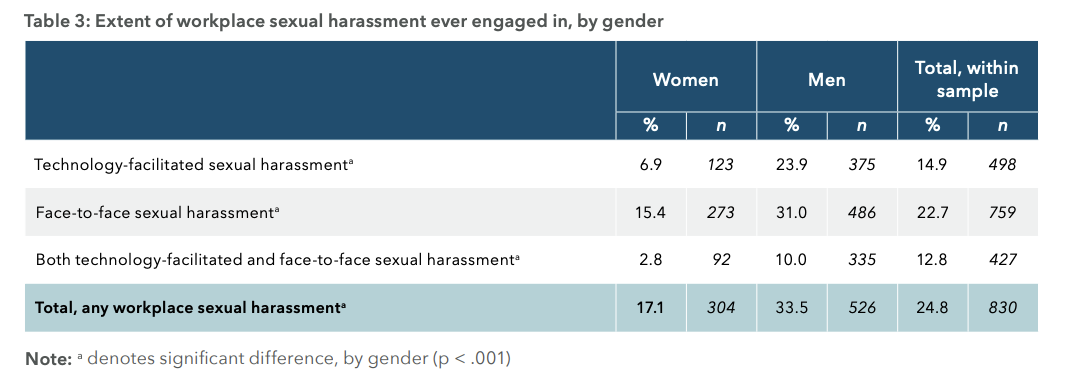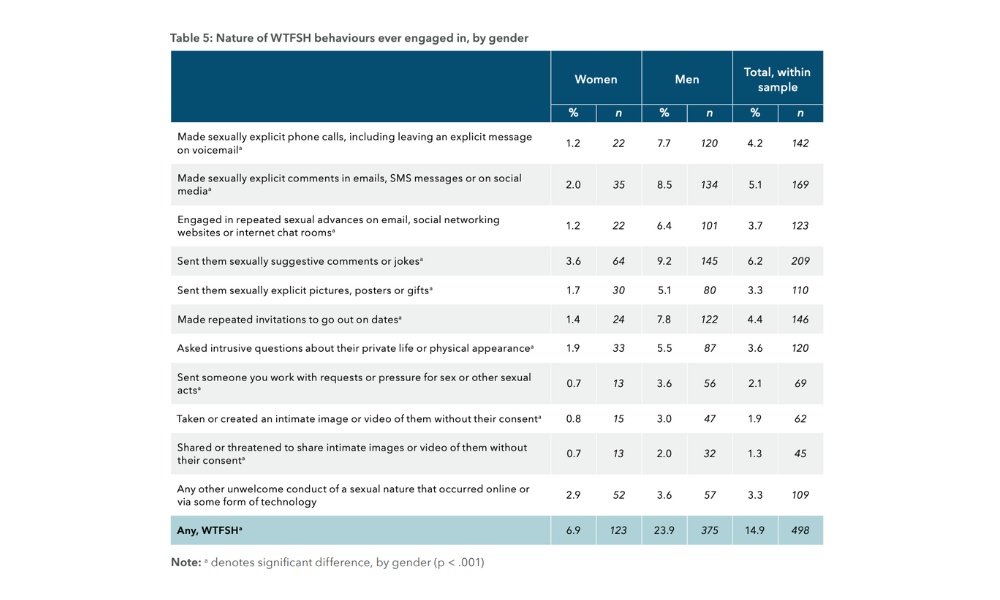
Perpetrators admit to sexually explicit comments in emails, SMS messages, or on social media

One in seven Australians have confessed to using technology when engaging in workplace sexual harassment, according to a new study.
The study found that 14.9% of nearly 500 respondents had engaged in workplace technology-facilitated sexual harassment (WTFSH), which refers to "unwelcome or harassing sexual behaviour utilising mobile, online and digital technologies within a workplace setting," according to the study.
The practice was more prevalent among men (23.9%) than they were among women (6.9%).
Tessa Boyd-Caine, chief executive officer of Australia's National Research Organisation for Women's Safety, said the findings make the need to address sexual harassment "all the more urgent."
"Employers need to build safety into workplace cultures and technologies to protect their staff. Likewise, policymakers must prioritise implementing effective measures to prevent and address these behaviours," Boyd-Caine said in a statement.

Source: Workplace technology-facilitated sexual harassment: Perpetration, responses and prevention
Using tech for harassment
Those who committed WTFSH said they did it using work email (31%), according to the study. Others said they used their personal phone or mobile (29%), personal email (27%), or work phone or mobile (25%), according to the study.
Some 6.2% of those who committed WTFSH said they sent their victim sexually suggestive comments or jokes. Another 5.1% said they made sexually explicit comments in emails, SMS messages, or on social media.
Some 4.4% said they made repeated invitations to go out on dates, while 4.2% admitted to making sexually explicit phone calls, including leaving an explicit message on voice mail.

Source: Workplace technology-facilitated sexual harassment: Perpetration, responses and prevention
More than half (51.5%) of those who committed WTFSH said they thought their subject would be "okay with it," while 44.6% said they thought their subject "would be flattered."
And only 39% of perpetrators of WTFSH said they received any formal reports or complaints against them.
"These findings underscore the pervasive nature of workplace technology-facilitated sexual harassment, revealing not only its extent, but also the troubling attitudes and motivations behind such behaviours," said Asher Flynn, Associate Professor of Criminology at Monash University and one of the authors of the study, in a statement.
"It's imperative that we address these issues comprehensively to foster safer and more respectful work environments for all."